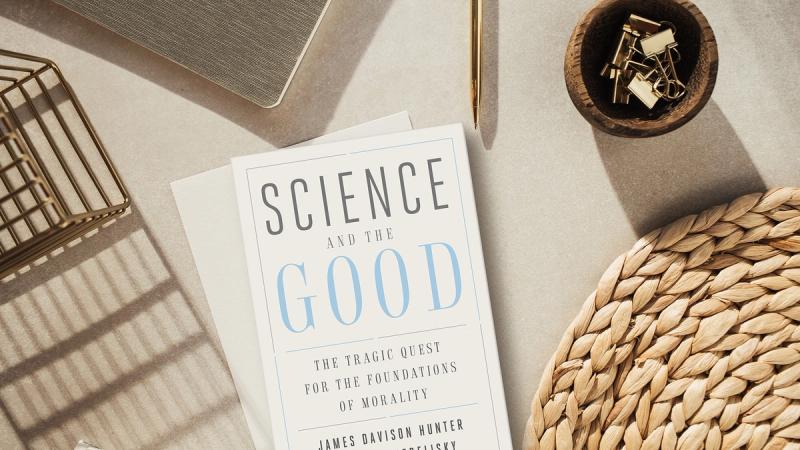I thank Rev. Bombaro for his reflections on James Davison Hunter’s and my book Science and the Good: The Tragic Quest for the Foundations of Morality. It’s always nice to see that people are thinking about one’s work, and I’m gratified that Rev. Bombaro finds much of value here, even while finding fault with some elements of it. This is unsurprising; we aren’t all going to agree on everything. However, Rev. Bombaro’s criticisms seem largely based on misunderstandings of our book, and this is why I reply—if I can clear up some of these, perhaps the value of the book will be a little more visible.
First, Rev. Bombaro says we “caricature” the new moral scientists as “tragic.” This is because the narrative in which they find their role is indeed tragic. As we show, the quest for a science of morality initially arose in an effort to end the violence that comes from deep moral disagreement by way of empirical demonstration of the moral truth, but today has become a morally nihilistic attempt to name as “scientific” the instrumental pursuit of whatever social consensus wants. That the new moral scientists represent a near-total inversion of the quest’s original goals strikes us as tragic in the extreme.
Second, Rev. Bombaro says we “fail” to analyze the good. It is true that we don’t attempt to analyze the good, for two reasons: first, it’s irrelevant to our project. We discuss the definition of moral terms only to note that these seem to be non-empirical insofar as they’re accurate. We don’t need to present an analysis of ‘the good’ to point out that value of this sort doesn’t appear to be empirically detectible or demonstrable. In general, we can often tell that something is not X even where we don’t have a comprehensive analysis of X. A simple example: few of us can present a precise definition of color, yet most of us can tell that squareness isn’t a color. In short, since we don’t think one should waste paper offering analyses that don’t figure in the story or argument one is presenting, we do not offer one here. Second, there is good reason to think that goodness cannot be analyzed—that instead it is among the basic building blocks of reality, out of which other elements are built, but which themselves are fundamental. In that case, even if it had been relevant to offer an analysis of the good, we could not have done so.
Third, Rev. Bombaro criticizes our historical narrative as “disputable” because we don’t explore Kant and his influence. But again, this isn’t relevant to our story. We aren’t attempting to give a history of ethical thought; we’re giving a history of the science of morality—just one strand in the history of ethics. Kant’s approach to ethics was not scientific, let alone empirical, so any detailed discussion here would have contributed little to our account. It is plausible that Kant’s positive influence at times helped push professional ethics away from more scientific accounts, but this is speculative and these lines of indirect influence are hard to trace.
And, for what it’s worth, part of why Rev. Bombaro thinks Kant is relevant to our story is based on a simple mistake. He claims it was “Kant’s Critique of Pure Reason that inspired Hume and set the stage for Darwinianism and the shift toward a thoroughly anthropocentric morality.” In fact, it was the other way around: it was Hume’s work that Kant claimed to have aroused him from his “dogmatic slumbers.”
In his conclusion, Rev. Bombaro notes that our work shouldn’t be used as an “argument defeater” against materialists due to our work’s “insufficiencies.” I agree that our work doesn’t make for a good objection to materialism. But once again, Rev. Bombaro is faulting us for failing to do something we never intended to do. While some of our observations could be employed in arguments against materialism, it’s not part of our project to provide such arguments. As such, it’s tough to see how this amounts to an insufficiency in the book. The value of a book on ideas and culture isn’t exhausted by its relevance to apologetic endeavors—far from it. There is significance beyond defending one’s faith—we have tried to show the impotence and danger of the new moral science for everyone, regardless of their religious orientation. And there is always value in better understanding the sources of the regnant moral authority in our culture; where they came from, what animates them, what they really amount to, and where they are leading us. Even within the narrower confines of apologetics, surely one must understand what one faces before one can ably engage it.
Paul Nedelisky the author of Science and the Good: The Tragic Quest for the Foundations of Morality and a fellow at the Institute for Advanced Studies in Culture at the University of Virginia.
This article was originally published at MR on July 10, 2019.



